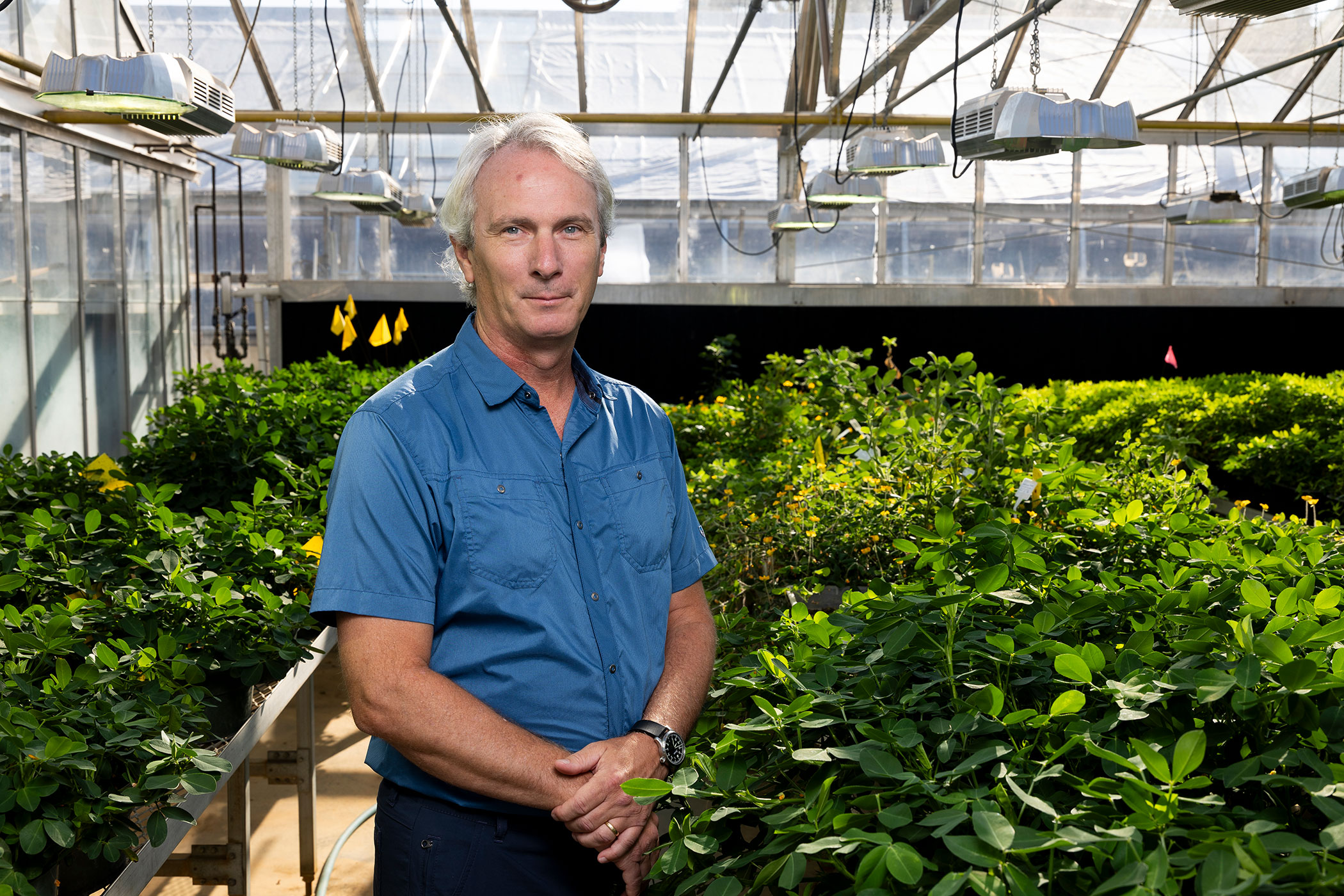Renowned plant genetics researcher Scott Jackson has returned to the University of Georgia College of Agricultural and Environmental Sciences (CAES) as the inaugural Georgia Research Alliance (GRA) Eminent Scholar in Synthetic Biology.
GRA Eminent Scholars are internationally renowned scientists recruited to Georgia’s leading research universities in collaboration with the Georgia Research Alliance. GRA Eminent Scholars are distinguished by the significance of their research discoveries and their potential for commercial application and workforce development. With Jackson’s return to the university, UGA will have 17 current GRA Eminent Scholars.
“I am delighted to welcome Dr. Jackson back to UGA as the Georgia Research Alliance Eminent Scholar in Synthetic Biology to establish our institution as a leader in this important, emerging area for future innovation,” said President Jere W. Morehead. “I am very grateful to the Georgia Research Alliance for their partnership in bringing some of the best scientists in the world to our state and university.”
Jackson’s work focuses on linking plant DNA sequences to their functions to improve the productivity and sustainability of crops vital to the economy. In his new role, Jackson will utilize advanced modeling to explore the role of multiple, interacting genes in agricultural systems, working from DNA to molecules to entire production systems.
He also will recruit a cohort of additional faculty members to establish a center of excellence in the application of genomic tools for crop improvement.
“Scott Jackson has a remarkable record of accomplishment in translational research and collaboration with scientists from different disciplines,” said Tim Denning, president and CEO of the Georgia Research Alliance. “His experience working in and alongside industry is a major advantage for advancing a pipeline of innovation in agriculture. Georgia is very fortunate to have Scott return to the Academy of GRA Scientists.”
To date, Jackson has been recognized by several peanut and soybean commodity groups, including the International Peanut Genome Initiative, for creating sequence maps of plant genomes. In 2002, he received the Young Investigator Award from the National Science Foundation. Jackson is also a Fellow of the American Association for the Advancement of Science.
“Dr. Jackson’s work is a prime example of how agricultural research can positively impact our state’s economy and the lives of people around the world,” said S. Jack Hu, the university’s senior vice president for academic affairs and provost. “We look forward to working with him to advance his research in this next chapter of his exceptional career.”
This is Jackson’s second turn as a GRA Eminent Scholar at UGA. He first came to the university in 2011 as the GRA Eminent Scholar in Plant Functional Genomics and served as a professor in CAES for eight years. Also during this time he provided leadership for the university-wide Plant Center in addition to the Center for Applied Genetic Technologies.
He left UGA to join Bayer Crop Science in 2019, a German multinational pharmaceutical and biotechnology company, where he led the North American product development and systems hub. During this time, he continued to teach at CAES in an adjunct role.
“Dr. Jackson brings a strong record and reputation in both academia and industry, with a wealth of experience in plant breeding that makes him an excellent addition to our current programming at the college and university levels,” CAES Dean and Director Nick Place said. “Having him at UGA, especially in this critical area of synthetic biology, means that we’re going to be able to continue pushing forward in plant genetics and genomics.”
Jackson said he came back to UGA for three reasons: the faculty in plant biology and agriculture, whom he calls a “real strength of the university,” the administrative support for expanding scholarship to further agriculture in Georgia and around the world, and the university’s “incredible track record of translating fundamental research into products that impact Georgia growers, producers and the state’s economy.”
“For my second turn as a GRA Eminent Scholar, I’m as honored and humbled as I was before,” Jackson said. “The opportunity to help drive larger research initiatives that will have a direct impact on agriculture is what drives me and motivated me to return to UGA, a place that I love and hope to make an even better institution.”


